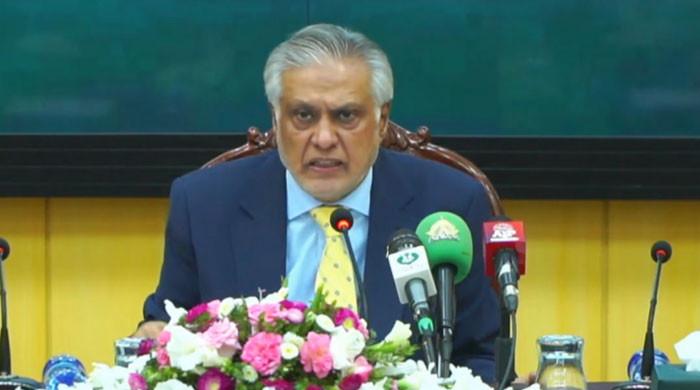Pakistan’s Diplomatic Surge: A Review of Recent Engagements
Islamabad: Deputy Prime Minister and Foreign Minister Senator Mohammad Ishaq Dar on Friday presented what he termed a highly dynamic period in Pakistan’s recent diplomatic endeavors.
During a media briefing at the Foreign Office, the Deputy Prime Minister elaborated on a series of significant visits, policy discussions, and engagements on the global stage throughout July and August. He outlined a clear vision for Pakistan’s foreign policy, which prioritizes regional stability, global interconnectedness, trade enhancement, and principled international advocacy.
Dar emphasized Pakistan’s role as the President of the UN Security Council in July, during which the nation presided over numerous sessions, including one concerning Palestine.
“A unanimous resolution advocating for peaceful conflict resolution was successfully adopted under Pakistan’s guidance, marking a notable diplomatic achievement,” he stated.
In Washington, D.C., Dar met with U.S. Secretary of State Marco Rubio on July 28 for a candid and productive dialogue addressing bilateral, regional, and global matters. He also interacted with think tanks, including the Atlantic Council, where his remarks regarding judicial independence were, in his view, misinterpreted by local political figures.
“The judiciary in Pakistan functions independently. It is regrettable that English remarks are being twisted for political advantage,” he clarified.
Dar reaffirmed Pakistan’s steadfast support for Palestine, referencing his participation in the international conference co-hosted by France and Saudi Arabia, as well as the OIC Emergency Foreign Ministers’ Meeting in Jeddah on August 25. At the OIC, Pakistan explicitly rejected the so-called ‘Greater Israel’ plan, denouncing it as illegitimate and unacceptable.
He also revealed Pakistan’s discreet diplomatic efforts during the Iran–Israel tensions, noting that sincere engagement led to Iran acknowledging Pakistan as a genuine ally.
“Iranian parliamentarians expressed gratitude to Pakistan in their parliament, which is highly significant,” he noted.
Dar characterized his trilateral visit to Kabul on August 20, alongside the Chinese and Afghan foreign ministers, as productive and strategic. Discussions focused on refugees, border security, commerce, and infrastructure, with an agreement reached regarding the Pakistan–Afghanistan–Uzbekistan railway. China has also agreed, in principle, to extend CPEC into Afghanistan.
During his visit to Bangladesh (August 23–24), Dar engaged with prominent leaders from all major parties, including the Bangladesh National Party (BNP) and Jamaat-e-Islami, in a comprehensive diplomatic outreach. Six Memorandums of Understanding (MoUs) were signed across various sectors, encompassing visa exemptions, trade cooperation, and cultural exchange. He also advocated for the revitalization of SAARC, noting that while Bangladesh is supportive, resistance from one state remains an obstacle.
During his UK visit from August 17–19, Dar met with Deputy PM Angela Rayner, parliamentarians, and the Commonwealth Secretary-General. He introduced significant diaspora-focused services at the Pakistan High Commission in London, including digitized Punjab land records and a streamlined passport issuance system.
Dar also announced the lifting of UK flight restrictions on PIA, following the earlier removal of the EU ban in November 2024. Flights to Manchester are set to resume in September, and a UK–Pakistan Business Advisory Council has been established to bolster trade and investment flows.
Dar affirmed that Pakistan and China will commemorate 75 years of diplomatic relations in 2026, with numerous cultural and economic events planned. He highlighted China’s growing interest in investments in agriculture, mining, and industry. He also stated that 1,000 Pakistani graduates are being sent to China for advanced agricultural studies.
Pakistan’s stance on the “One China Policy” remains consistent, Dar emphasized, noting China’s steadfast support on the Kashmir issue in return.
Whether participating in global peace initiatives, regional trade endeavors, or conflict mediation, Pakistan, he asserted, is confidently and proactively re-engaging on the diplomatic front.
“We are not merely reacting; we are actively shaping regional discussions and global dialogues,” Dar concluded.
“Our foreign policy is grounded in principle, informed by experience, and aligned with the aspirations of the Pakistani people.”



Comments (0)
No comments yet. Be the first to comment!
Leave a Comment